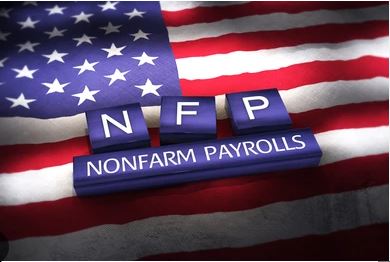LEARN FROM GENERALS OF THE MARKETS – PART 22

“I love my career and am always learning more about trading. I felt my passion for the industry and harnessed it with full commitment.” – Chris Cashman
Sam Seiden, a trading genius, started his trading career on the floor of the Chicago Mercantile Exchange. Since 1991, he’s been involved in various types of financial markets. Currently, he’s the Vice president of Education at Online Trading Academy. Local and international students now tap from his decades of trading experience. He’s a fund manager and a Commodity Trading Advisor (CTA). He’s a speaker to investment bodies, colleges and private trading conferences. He’s authored Market Advisory letters. He also speaks at seminars and contributes to various trading magazines. By visiting Tradingacademy.com, you’d be able to access his articles, courses, presentations, and also benefit from coming ones.
Lessons
Great lessons can be learned from Sam Seiden, and sometimes, some of these lessons fly in the face of conventional trading wisdom.
1. Honestly speaking, most of the conventional trading ideas are rubbish. Why? This is because most of those who use them end up being unprofitable traders, even after having played the markets with those trading ideas constantly. Trading ideas that work are the ones that allow you to be consistently profitable. Our major aim is to make money constantly and earn a living from trading. Even novice traders make profits here and there, but they cannot retain the profits over a long period of time. How can you retain your profits?
2. There’s someone on the other side of your trade who’s trading against you. This person isn’t your reliable broker, but your fellow trader. For every person that buys, someone else sells. When you buy EURUSD and it goes up and you’re making money, all those who buy at the same time with you will make money. But those who sell at that time will be losing (reverse the logic for when you sell and the market goes down). That is the reality in trading. Trading is a zero sum game: whatever you gain comes from others who’ve lost their socks in the markets, and vice versa. You don’t need to see the people at the other side of your trade, but you need to be smarter than they are. For you to remain smarter than other traders, you’ll obviously do what’s contrary to what majority of them do (majority are losers). The human mind isn’t wired to trade in an appropriate manner. The common human mindset doesn’t want to trade in logical manners. Fortunately, what can be learned can also be unlearned. Through your determined effort, you can condition your mind to trade properly.
3. The most crucial factor to consider when trading is the chart (plus the price action). On the chart, you can see where Smart Money is making long and short traders. On the chart, you’ll see what novice traders might be doing. On the chart, you’ll see potential reversal areas in the markets, and capitalize on them with insane accuracy. These areas are called demand and supply levels. A supply level is where the novice would be happy to buy from the smart trader. This is where many enthusiastic bulls want to go long – to their ruin. The demand level is where the novice trader would be glad to sell to the smart trader. This where many optimistic bears would prefer to go short – to their own detriment. Neophytes buy at retail prices and sell at wholesale prices. One of the smartest things you can do as a speculator is to buy at a wholesale price (demand level) and sell at a retail price (supply level). This logic tallies with how successful retailers in the world make their money. It’s just the same way with trading: only that market speculators do that in their living rooms.
4. Sam’s experience on the floor of Chicago Mercantile Exchange (CME, where he handled institutional flow orders) has given him a deep insight into the market. The reality of how the market works has to do with the ongoing supply and demand relationship, whether the market is in an equilibrium zone or in a trending mode. Trading opportunities emerge whenever demand and supply are out of balance. Any type of financial markets and indicators will do only if you use them according to how the markets really work. Now, using indicators to analyze this kind of scenario is possible, provided the indicators are used logically (otherwise indicators would be worthless). These indicators can also be used to understand why the markets move and how they do that.
5. The best thing to do on the market is to buy when prices are on sale in the context of an uptrend. You’d do well to disregard any ‘buy’ signal when oscillators are overbought in a bullish mode. The best thing to do on the market is to sell when prices rally in the context of a downtrend. You’d do yourself a favor by disregarding any ‘sell signal when oscillators are oversold in a downtrend. Summary: Buy low in an uptrend. Sell high in a downtrend. And do it right.
6. There’s no perfect trading system and there won’t be one. Even, the best trading idea in the world can’t win always. There’s no need for a perfect trading idea, otherwise the person would be the richest person in the world. Using logical speculative principles is the only way to stack the odds of success in your favor. Although, Las Vegas can’t win always, they do well ultimately because they know they can’t always win. They simply follow the plans that make them smarter than others. This is how we get advantages over those who aren’t as smart as us.
Conclusion: The sloth is remarkable for its stupidity; just as the novice trader is remarkable for making average losers that are much bigger than average winners. For you to make average winners that are much bigger than average losers, you need to learn how to be smarter than those at the other side of your trade. Instead of going for higher education for higher certificates in order to procure higher position and higher salary (though it looks ideal), simply build your trading skills and track records for increasing financial freedom.
This article is concluded with a quote from Sam:
“Trading strategies that work don’t change with time, markets, or changing market conditions.”


 Hot Features
Hot Features













